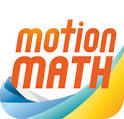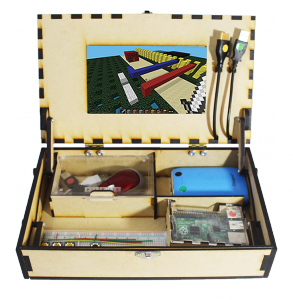On November 19th, I covered the biannual Social Innovation Summit held in San Francisco for the Cooney Center and my colleagues at the Disruptor Foundation. The summit brought together over 1,000 leaders interested in identifying, exploring, and actualizing partnership opportunities across the Business, Technology and Community sectors.
I came to the conference eager to learn more about the future of game-based learning (GBL) and its potential to effectively engage students, boost their learning outcomes and put them on a path towards lifelong learning. Given my enthusiasm for the space and my experience working for organizations like E-Line Media, Entertainment Software Association and Learning Games Network when I was an undergrad at University of Wisconsin, I was extremely excited to attend a pre-conference session focused on “play.”
The session was convened by Co.lab—a San Francisco based accelerator co-founded by New Schools Venture Fund and Zynga.org, and organized with the great leadership of Jessica Lindl, Managing Director of GlassLab, a joint venture of Electronic Arts, ETS, Pearson Foundation and the Entertainment Software Association. Co.lab focuses on startups that are interested in leveraging the power of digital games to enhance learning outcomes for PK-12 students. Their goal is to cultivate world class businesses by providing funding opportunities, distribution channels and guidance. The lab is currently supporting its third cohort and a majority of the companies at this session were members.
The bulk of the session was set up as a speed-dating exercise where startups sat on one side and potential partners and funders sat on the other. Each startup had five minutes to pitch their business to the funders before moving on to the next. This process was meant to bolster the connection between much-needed capital and innovative ideas in an effective, time-urgent manner. It was expected that funders and startups would exchange business cards where appropriate and follow up with each other in the coming weeks.
The setup led to an interesting, intimate and effective session. In the aftermath, funders ranging from the Bill and Melinda Gates Foundation, MacArthur Foundation, Blackbaud, Disney and Bill Gates’ top health adviser met to discuss ways to grow the game-based learning sector. Those in attendance used terms like “truly inspiring,” “breathtakingly creative,” and “full of promise” to describe the innovations they learned about. The discussion also focused on major issues in the GBL space such as how to use a gaming platforms to personalize learning, bridge home and school use, and gain adoption in a truly difficult formal learning market.
The session resulted in crucial capacity-building between a diverse set of stakeholders, all of whom have a shared interest in transforming the education sector through game-based learning. It is my sincere hope that the relationships formed through this session will continue to grow and deepen over the next several months but will also lead to solving some of the major concerns brought up by the funders.
Below are brief highlights on the companies that attended the session:
 Wonder Workshop seeks to teach computer programming to children through robotics. The company aims to teach kids as young as five, an age that is often neglected when it comes to computer programming. It is currently an out-of-school product but has a funded pilot underway in 25 schools.
Wonder Workshop seeks to teach computer programming to children through robotics. The company aims to teach kids as young as five, an age that is often neglected when it comes to computer programming. It is currently an out-of-school product but has a funded pilot underway in 25 schools.
 Mindblown Labs creates highly interactive, experiential learning tools to empower young people to make better life decisions. The game that they shared with us was called Thrive ‘n’ Shine, which was actualized through a very successful Kickstarter campaign. The app is aimed at teaching teens and young adults about personal finance. The company has already impacted 5,000 teens and young adults but has a goal of impacting 20 million by 2020.
Mindblown Labs creates highly interactive, experiential learning tools to empower young people to make better life decisions. The game that they shared with us was called Thrive ‘n’ Shine, which was actualized through a very successful Kickstarter campaign. The app is aimed at teaching teens and young adults about personal finance. The company has already impacted 5,000 teens and young adults but has a goal of impacting 20 million by 2020.
![]() Kizoom Labs has built several award-winning apps that have rallied kids and parents around the importance of brain science. The company was developed on the idea that when kids (ages 6-11) recognize the power of their own brains, they build cognitive skills and gain confidence and openness to learning new things. Disney and Pixar have recently adapted this concept and are producing a feature film on the topic in early 2015. The movie, Inside Out, follows the emotions of an 11-year-old girl.
Kizoom Labs has built several award-winning apps that have rallied kids and parents around the importance of brain science. The company was developed on the idea that when kids (ages 6-11) recognize the power of their own brains, they build cognitive skills and gain confidence and openness to learning new things. Disney and Pixar have recently adapted this concept and are producing a feature film on the topic in early 2015. The movie, Inside Out, follows the emotions of an 11-year-old girl.
 Kiko Labs was founded by Grace Wardhana and Tim Lopez, two seasoned gaming executives. They were unsatisfied with the current educational offerings for young children and believed they could combine intelligent game design with evidence-based scientific research to create a learning system that was both fun and effective in fostering vital cognitive skills for future learning. Their first product is called Thinking Time and focuses on children aged 3-7.
Kiko Labs was founded by Grace Wardhana and Tim Lopez, two seasoned gaming executives. They were unsatisfied with the current educational offerings for young children and believed they could combine intelligent game design with evidence-based scientific research to create a learning system that was both fun and effective in fostering vital cognitive skills for future learning. Their first product is called Thinking Time and focuses on children aged 3-7.
 Learning Games Network is a multi-institution consortium linking scholars and designers at University of Wisconsin and MIT. The Network convenes perhaps the premier GBL research summit annually known as Games Learning Society. Its senior researchers include well known scholars and innovators such as Kurt Squire, Constance Steinkuehler, Eric Klopfer and Scot Osterweil. The Network also conducts ongoing professional development and recently released a remarkable game called Radix.
Learning Games Network is a multi-institution consortium linking scholars and designers at University of Wisconsin and MIT. The Network convenes perhaps the premier GBL research summit annually known as Games Learning Society. Its senior researchers include well known scholars and innovators such as Kurt Squire, Constance Steinkuehler, Eric Klopfer and Scot Osterweil. The Network also conducts ongoing professional development and recently released a remarkable game called Radix.
![]() Galxyz is a science-based game aimed at teaching children K-12 about the universe. Osman Rashid, the CEO of the company, got inspiration for the game from his two young daughters and the perception that: “students have more capacity to learn than we give them credit for. They are naturally perceptive and will easily see through products that seek to fool them into thinking they’re fun.”
Galxyz is a science-based game aimed at teaching children K-12 about the universe. Osman Rashid, the CEO of the company, got inspiration for the game from his two young daughters and the perception that: “students have more capacity to learn than we give them credit for. They are naturally perceptive and will easily see through products that seek to fool them into thinking they’re fun.”
![]() Code Monkey is an interactive game that teaches you to code in a real language (CoffeeScript). It is aimed at ages 8-16 and provides one semester of content. The product has grown organically to 4,000 classrooms since June and has been entering around 400 new classrooms a week.
Code Monkey is an interactive game that teaches you to code in a real language (CoffeeScript). It is aimed at ages 8-16 and provides one semester of content. The product has grown organically to 4,000 classrooms since June and has been entering around 400 new classrooms a week.
 Motion Math is a suite of games that help students master K-6 Common Core aligned math. Its co-founder Jacob Klein told me that in addition to the help their team has received from co.lab, they got a “huge boost” when they gained runner-up status in the JGCC inaugural innovation prize competition in 2010. To date they have logged more than three million downloads and are now focusing on transitioning from their popular home-based product to a classroom product. You can read more about MM’s excellent research on the efficacy of their approach here.
Motion Math is a suite of games that help students master K-6 Common Core aligned math. Its co-founder Jacob Klein told me that in addition to the help their team has received from co.lab, they got a “huge boost” when they gained runner-up status in the JGCC inaugural innovation prize competition in 2010. To date they have logged more than three million downloads and are now focusing on transitioning from their popular home-based product to a classroom product. You can read more about MM’s excellent research on the efficacy of their approach here.
![]() Piper was launched by two recent Princeton graduates on the principle that kids need to become creators of the future rather than just consumers. With this in mind, they created a hacker toolbox that teaches kids eight and up how to build electronics by playing minecraft. The team plans to release the toolkit this coming Spring. Below is what it looks like!
Piper was launched by two recent Princeton graduates on the principle that kids need to become creators of the future rather than just consumers. With this in mind, they created a hacker toolbox that teaches kids eight and up how to build electronics by playing minecraft. The team plans to release the toolkit this coming Spring. Below is what it looks like!

After taking some time to reflect on my experience at the Summit, let me share two key takeaways related to the education space:
- Games as Low Stakes Safe Environments for Learning. The startup/entrepreneurial world always talks about the importance of failure to enhance learning but this has not been a prominent strategy for learning in the classroom. High stakes learning through standardized tests is under great scrutiny now as the debate over ensuring students’ mastery of content domains remains heated. One takeaway from the developers is that games may help educators concentrate on both high and low stakes if done well. We need to concentrate on “lowering the stakes” for many students to gain mastery of the material. In other words, games can help students learn through experience. Fail, learn. Fail, learn. Succeed.
-
All Students Can Succeed if Given Support and Confidence. Nirvan Mullick who created the viral documentary film Caine’s Arcade discussed 9-year-old Caine Monroy’s journey. He explained that before Caine became famous and participated in speaking engagements around the world, he had a stutter and was considered “challenged” by his teachers. He was likely going to be held back. Now, Caine is considered “gifted” by his teachers, is excelling in school and no longer has a stutter. In the words of Nirvan: “Every child should be given the skills to imagine a world they can build.”

